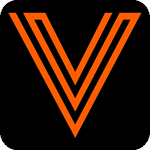Kick 90
eVolve Electrical contains and utilizes the most powerful, feature packed bend families in the industry. These families have been developed with the user in mind and allow for total customization. Becoming familiar with commonly used parts and their functions can open up a world of options that can't be found elsewhere.
Instance Properties

Convert- Activates the bend family parameters
Kick Height- Height of kick(Center to Center)

Kick to Top- Uses Top and Bottom of conduit rather than center to center

Kick Right- Stub end kicks up and right

Kick Left- Stub end kicks up and left
Reverse Fixed End- Switches the fixed end of the bend, which is used as the reference point to determine what side moves up or down.
Reverse Direction- Changes the direction that the transition is being made
Nose Minimum Length- The minimum possible stub length, based on bender settings.
Nose Length- Manually sets the length of the nose. (Nose Minimum Length must be unchecked)
Tail Remnant Length- Uses the balance of the remaining conduit for the tail end
Set Overall Bend Length- Check to activate the Overall Bend Length parameter

Overall Bend Length- Set the length of the bend
Use Custom Angle- Check to activate Angle Override
Angle Override- Manually set the angle that the bends are created with
Add Coupling 1- Adds a coupling to the green colored end
Add Coupling 2- Adds a coupling to the non-green colored end
Type Properties (Edit Type)

Use overall Length in BOM-eVolve length gets reported but can use overall length instead of max conduit length for just length of bend
Max Conduit Length- Set max conduit stick length. Default is standard 10' sections.
BOM & Legend
In the eVolve Template, each bend family has its own legend and BOM for fast and easy access to information.




